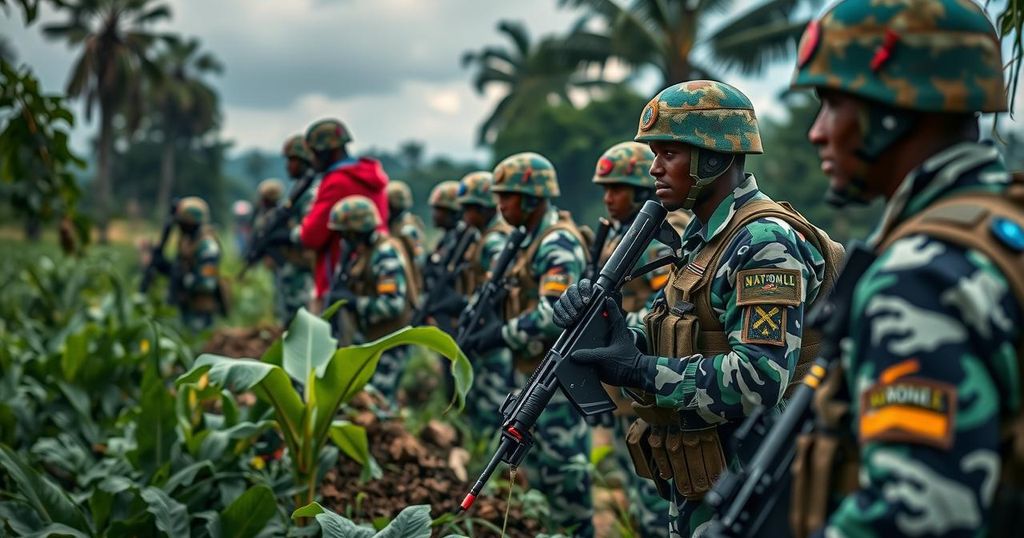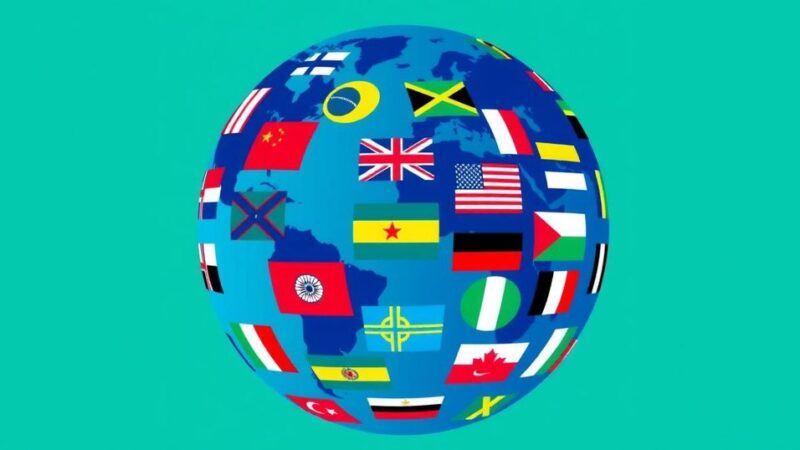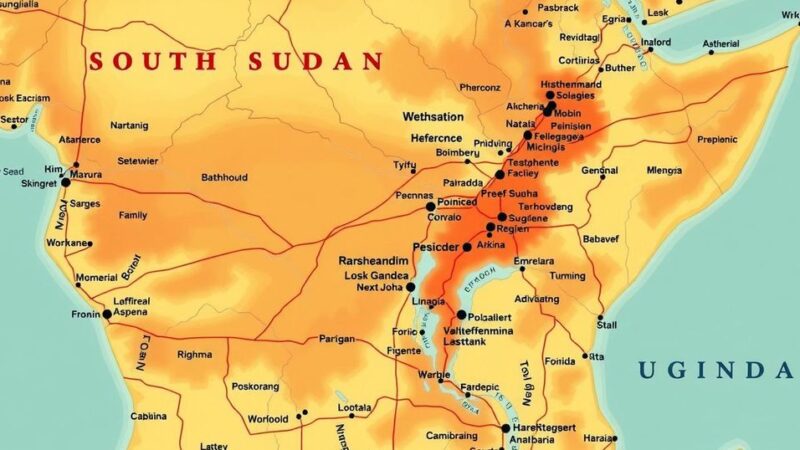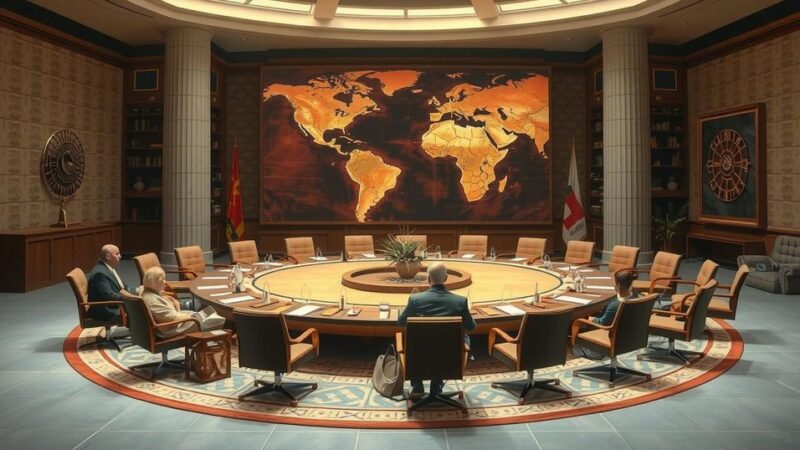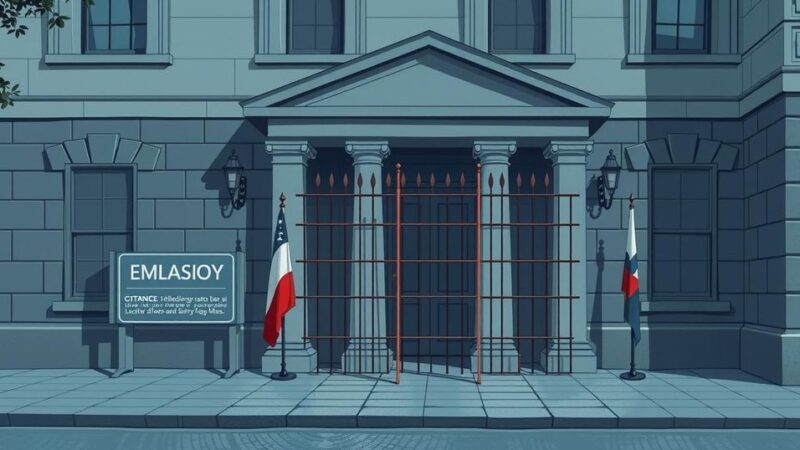The UN peacekeeping force in Congo, scheduled for withdrawal, remains due to escalating violence from Rwandan-backed rebels. Congolese citizens express growing dissatisfaction towards the peacekeepers, even as the potential for a security vacuum looms. The region’s mineral wealth intensifies the conflict, complicating both local stability and international interests. A revised timeline for the UN’s departure is under evaluation, yet concerns persist over the implications for community safety.
Despite the Democratic Republic of the Congo’s (DRC) desire for the United Nations (UN) peacekeeping force to withdraw, escalating violence, particularly from Rwanda-backed rebel groups, complicates this process. The UN peacekeepers, operating under the MONUSCO framework, were scheduled to leave by December; however, increasing hostility from armed factions has necessitated their continued presence. With over 14,000 personnel deployed, the mission, established over two decades ago, aims to stabilize the mineral-rich eastern region, which is critical to the global economy. Yet, widespread dissatisfaction with the peacekeepers has resulted in calls from the Congolese public for their departure, despite fears of a security vacuum following any withdrawal. Armed groups, including the M23, persistently threaten safety, and government forces struggle against better-equipped adversaries, some of which may number up to 4,000 individuals from Rwanda. Efforts to broker peace have yielded limited results, with tensions flaring even amidst a recent ceasefire agreement. In frontline towns like Sake, local militias strive to protect civilians against M23 attacks, citing a deterioration in confidence in both the Congolese military and the UN forces. Recent unrest has led to numerous protests against the peacekeepers, and disillusionment has reached a point where many citizens feel that MONUSCO’s protective role is inadequate. With 80% of the seven million displaced individuals in areas secured by MONUSCO, regional stability is precarious. The UN and U.S. officials have expressed concerns over the timing of any withdrawal, emphasizing that it cannot proceed without a clear strategy to safeguard civilians. Additionally, the region’s turmoil is exacerbated by international interest in its mineral wealth, particularly cobalt, gold, and tantalum, which are critical to many global industries. M23 rebels have seized control of resource-rich areas, applying pressure as they exploit local minerals to fund their operations—an act that attracts broader geopolitical scrutiny and complicates potential resolutions. Congolese officials indicate that a revised timeline for MONUSCO’s exit is being evaluated, but concrete plans remain elusive, leaving the future of both local communities and international peacekeeping efforts in uncertain territory.
The Democratic Republic of Congo (DRC) has been grappling with conflict for decades, fueled largely by its wealthy mineral resources. Western corporate interests and neighboring states, particularly Rwanda, have exacerbated the situation by supporting various armed groups in their quests for territorial control and mineral extraction. The UN peacekeeping mission, MONUSCO, was initially deployed with the aim of stabilizing the nation amid internal strife, but after more than twenty years of presence, its effectiveness has come into question. The eastern region, rich in cobalt and tantalum, is plagued by armed groups, which endangers both local civilians and the peacekeeping efforts. The local populace, which once relied on the UN for security, has increasingly grown frustrated, leading to a complex situation where calls for the departure of peacekeepers may risk furnishing a power vacuum amidst ongoing violence.
The situation in the Democratic Republic of the Congo presents a multifaceted dilemma. While there is a clear desire within the Congolese government and public for UN peacekeepers to withdraw, the existing threats posed by armed groups like the M23 and foreign influences from countries like Rwanda complicate any exit strategy. The international community recognizes the potential for increased violence and instability should the UN forces leave without adequate preparations. Given the significant role minerals play in the region and the ongoing conflicts driven by these resources, the future of both the DRC’s security and the efficacy of international peacekeeping efforts remains deeply uncertain.
Original Source: apnews.com
